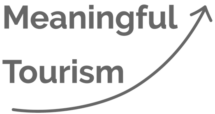About
What is Hedonic Sustainability?
Hedonic Sustainability, together with Positive Psychology and Experience Economy, are the foundation of Meaningful Tourism.
The Hedonic sustainability approach, which was developed by the Meaningful Tourism Center and its founder Prof. Dr. Wolfgang Georg Arlt FRGS FRAS, is based on the work of the Danish architect Bjarke Ingels who in 2011 first coined the term Hedonistic Sustainability, with the basic idea that sustainability can and should be pleasurable.
The core message of Hedonistic Sustainability is that products should work like an indulgence due to their function, last due to their quality, and preserve more than they consume due to a sustainable supply chain. Products that are pleasurable and sustainable remove the guilt often associated with pleasure and give both customer and companies a new way to evaluate a product’s value.
However, the term “hedonistic” has in the popular discourse become connected with selfishness and over-indulgence. Therefore “hedonic” is used instead, meaning being related to pleasure, while “hedonistic” means in search of pleasure.
Hedonic Sustainability accordingly is based on the architecture and city planning ideas of “Hedonistic Sustainability”, but transfers it for tourism – and other subjects – to the new approach of Hedonic Sustainability.
Hedonic Sustainability, put in simple terms, concentrates on the positive aspects of a sustainable development instead of focusing on restrictions and sacrifices. It gives equal weight to the original five elements of sustainability, namely economic, environmental, and social responsibility as well as the responsibility towards satisfaction of the stakeholders and towards global justice and equity.
Hedonic Sustainability does not see the different stakeholders in a development as rivals or even enemies, but concentrates on the positive possibilities resulting from the innovative alignment of interests.
What is Meaningful Tourism?
Meaningful Tourism is a powerful tool for destinations and all service providers in tourism, hospitality, retail and transportation to move forward in achieving positive results of the development of post-pandemic tourism for all stakeholders involved.
To provide a positive solution for the post-pandemic tourism development, the paradigm of Meaningful Tourism has been developed the answer to the need of moving forward from the concepts of Sustainable Tourism and Responsible tourism, which have not been able to achieve substantial changes in the way tourism growth began to develop into a negative, destructive force instead of a activity connected with pleasure, experiences, friendship, peace and economic development especially of Low Income countries.
Based on the concepts of Hedonic Sustainability, Positive Psychology, and the third generation of Experience Economy as part of the transformation economy, Quality, Benefits and Satisfaction for all stakeholders are the key elements of Meaningful Tourism.
Sustainable and Responsible tourism in most cases provide negative proposals of what to do less or not to do at all and for what to pay more, without providing much benefits in return except a good consciousness. Meaningful Tourism is not about sacrifices and reductions, instead it offers ways to create benefits and satisfaction based on the specific interests of all involved: Guests, Hosts, Employees, Companies, Governments and the Environment.
